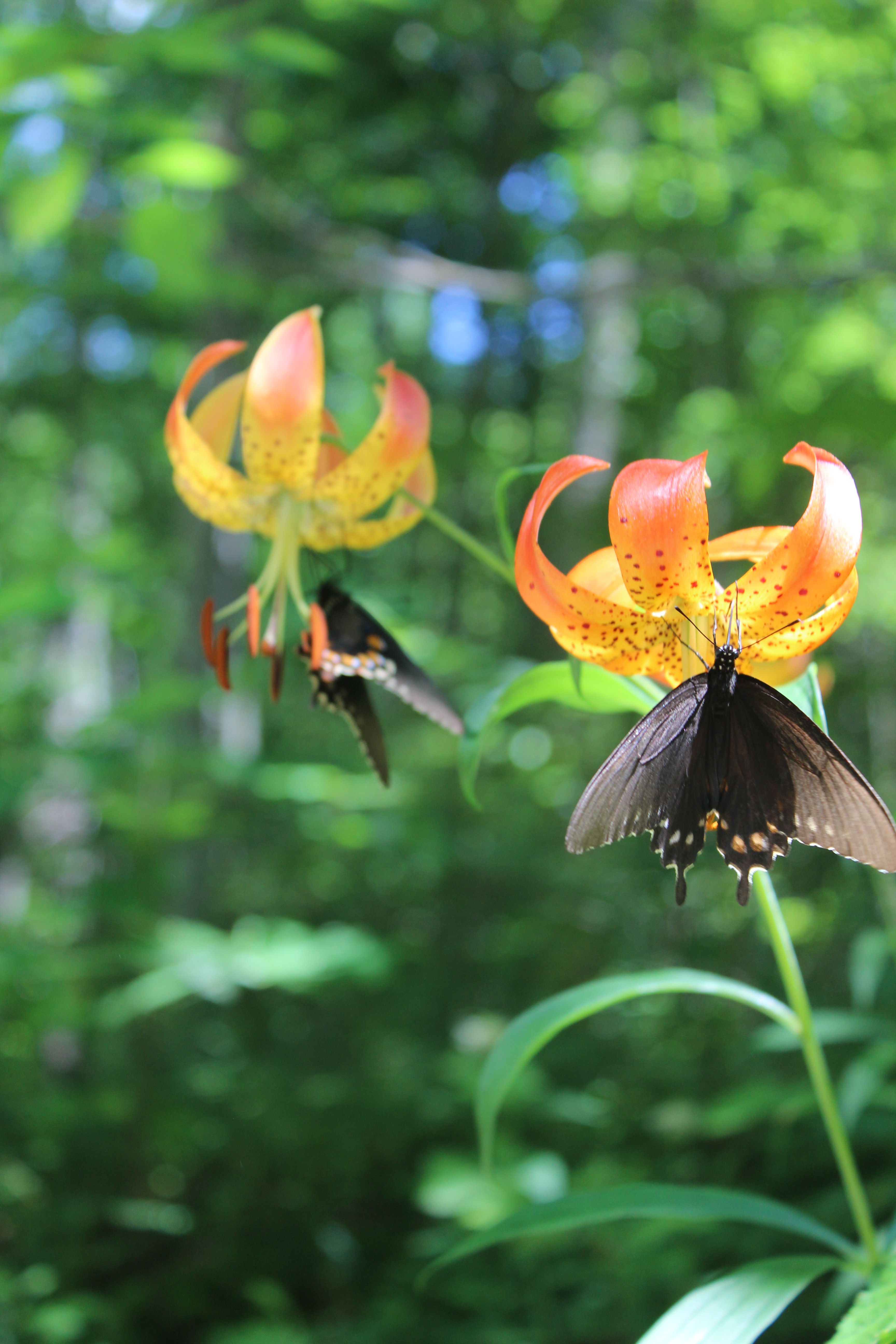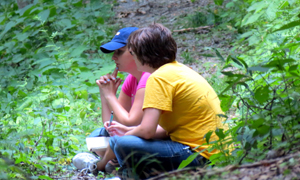
Forest Ecosystems In A Changing World
To accomplish this goal a new course is offered each summer through the English Department at West Virginia University:
"Writing Appalachian Ecology: Long-Term Reflections on Environmental Biology."
The Writing Appalachian Ecology course is based on the Long-term Ecological Reflections program developed at Oregon State University, which takes place at the Andrews Experimental Forest in Oregon and Mount St. Helens in Washington.
Our course addresses a National Science Foundation (NSF) initiative that encourages communication and dialogue between scientists and the public. It is also part of the Ecological Reflections Network.
Writing Appalachian Ecology began in the summer of 2012 and to date it has trained 2 graduate students and 11 undergraduates.
 A Field Guide to the Fernow:
A Field Guide to the Fernow:
An Artistic Exploration of Life on the Fernow Experimental Forest
Learn more about this contest, and how to submit an entry, by Clicking Here.
Writing Appalachian Ecology:
Long-Term Reflections on Environmental Biology
 This class challenges students to slowdown, get out of the classroom, and think deeply about what they see and learn. They are encouraged to think about the long-term future of our planet. What could our world be like in 200 years? How will current environmental problems change the future? What will the effects of global climate change look like? How will our relationships with the natural world change? Students have the opportunity to address questions like these in the creative nonfiction essay they write. We believe that the creative works they produce will enhance not only their understanding of long-term environmental issues but ours as well.
This class challenges students to slowdown, get out of the classroom, and think deeply about what they see and learn. They are encouraged to think about the long-term future of our planet. What could our world be like in 200 years? How will current environmental problems change the future? What will the effects of global climate change look like? How will our relationships with the natural world change? Students have the opportunity to address questions like these in the creative nonfiction essay they write. We believe that the creative works they produce will enhance not only their understanding of long-term environmental issues but ours as well.
Course Goals
- Bridge the sciences and humanities, resulting in more effective ways to communicate scientific results, and their implications, to society.
- Produce a permanent record of how our perceptions of the world influence how society responds to a changing environment.
Student Goals
- Learn about ecological research being conducted at the Fernow Experimental Forest.
- Adopt a 200-year perspective to ensure long-term thinking
- Read, discuss, and respond to the work of classic and contemporary writers
- Develop and hone your creative writing skills
- Produce a polished, publishable essay about your experiences with Fernow
Course Instructors
 Katie Fallon
Katie Fallon
Katie Fallon’s nonfiction has appeared in a variety of magazines and journals. Katie teaches creative writing at WVU, and is actively involved with the conservation and rehabilitation of wild birds. Katie is also the author of the book Cerulean Blues: A Personal Search for a Vanishing Songbird.
 Bill Peterjohn
Bill Peterjohn
Dr. Peterjohn teaches biology at WVU. He has conducted research for over 21 years at the Fernow Experimental Forest, and is trying to understand how acid rain affects water quality, soil fertility, and the growth of forest trees.
Excerpts from Student Essays
Listen to students read from their essays
Writing Appalachian Ecology Students